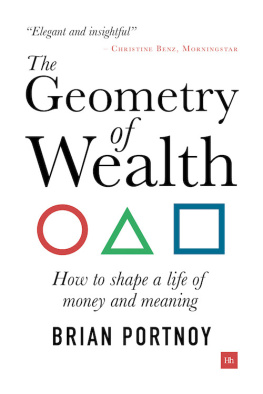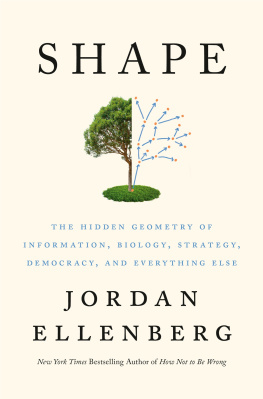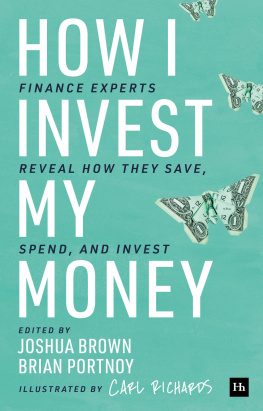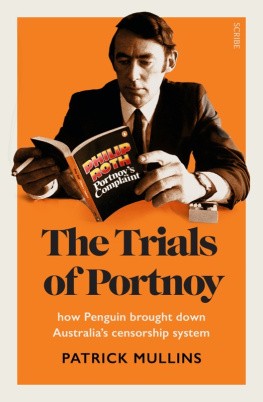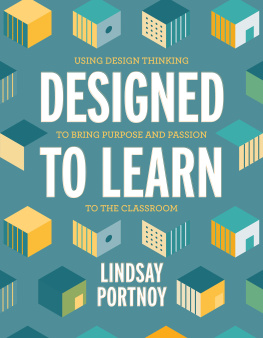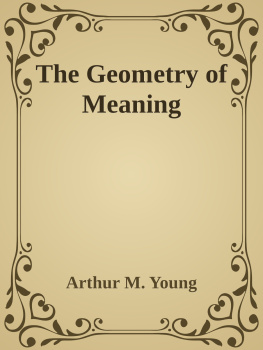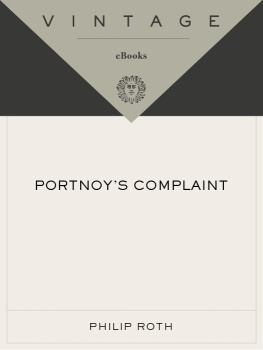Brian Portnoy [Portnoy - The Geometry of Wealth: How to shape a life of money and meaning
Here you can read online Brian Portnoy [Portnoy - The Geometry of Wealth: How to shape a life of money and meaning full text of the book (entire story) in english for free. Download pdf and epub, get meaning, cover and reviews about this ebook. year: 2018, publisher: Harriman House, genre: Romance novel. Description of the work, (preface) as well as reviews are available. Best literature library LitArk.com created for fans of good reading and offers a wide selection of genres:
Romance novel
Science fiction
Adventure
Detective
Science
History
Home and family
Prose
Art
Politics
Computer
Non-fiction
Religion
Business
Children
Humor
Choose a favorite category and find really read worthwhile books. Enjoy immersion in the world of imagination, feel the emotions of the characters or learn something new for yourself, make an fascinating discovery.
- Book:The Geometry of Wealth: How to shape a life of money and meaning
- Author:
- Publisher:Harriman House
- Genre:
- Year:2018
- Rating:3 / 5
- Favourites:Add to favourites
- Your mark:
- 60
- 1
- 2
- 3
- 4
- 5
The Geometry of Wealth: How to shape a life of money and meaning: summary, description and annotation
We offer to read an annotation, description, summary or preface (depends on what the author of the book "The Geometry of Wealth: How to shape a life of money and meaning" wrote himself). If you haven't found the necessary information about the book — write in the comments, we will try to find it.
Brian Portnoy [Portnoy: author's other books
Who wrote The Geometry of Wealth: How to shape a life of money and meaning? Find out the surname, the name of the author of the book and a list of all author's works by series.
The Geometry of Wealth: How to shape a life of money and meaning — read online for free the complete book (whole text) full work
Below is the text of the book, divided by pages. System saving the place of the last page read, allows you to conveniently read the book "The Geometry of Wealth: How to shape a life of money and meaning" online for free, without having to search again every time where you left off. Put a bookmark, and you can go to the page where you finished reading at any time.
Font size:
Interval:
Bookmark:
The Geometry of Wealth

How to Shape a Life of Money and Meaning
Brian Portnoy
Harriman House
HARRIMAN HOUSE LTD
18 College Street
Petersfield
Hampshire
GU31 4AD
GREAT BRITAIN
Tel: +44 (0)1730 233870
Email: enquiries@harriman-house.com
Website: www.harriman-house.com
First published in Great Britain in 2018
Copyright Brian Portnoy
The right of Brian Portnoy to be identified as the Author has been asserted in accordance with the Copyright, Design and Patents Act 1988.
Paperback ISBN: 978-0-85719-671-2
eBook ISBN: 978-0-85719-672-9
British Library Cataloguing in Publication Data
A CIP catalogue record for this book can be obtained from the British Library.
All rights reserved; no part of this publication may be reproduced, stored in a retrieval system, or transmitted in any form or by any means, electronic, mechanical, photocopying, recording, or otherwise without the prior written permission of the Publisher. This book may not be lent, resold, hired out or otherwise disposed of by way of trade in any form of binding or cover other than that in which it is published without the prior written consent of the Publisher.
Whilst every effort has been made to ensure that information in this book is accurate, no liability can be accepted for any loss incurred in any way whatsoever by any person relying solely on the information contained herein.
No responsibility for loss occasioned to any person or corporate body acting or refraining to act as a result of reading material in this book can be accepted by the Publisher, by the Author, or by the employers of the Author.
For Tracy, Ben, Zach, and Sarah
Do not hurry; do not rest.
Johann Wolfgang von Goethe
Contents
About the author
Brian Portnoy, Ph.D., CFA, is the author of two books The Investors Paradox and The Geometry of Wealth which simplify the complex world of money. Both suggest that in a noisy world achieving simplicity is hard but worthwhile. Currently the Director of Investment Education at Virtus Investment Partners, a $100 billion investment solutions platform, Brian works with financial advisors and individual investors to make smarter decisions and attain better life outcomes. For the past two decades, Brian has worked in both the mutual fund and hedge fund industries, including at Morningstar and Mesirow Financial. He has spoken to audiences globally about investment strategy and decision-making, including the U.S. Securities and Exchange Commission as part of its Leading Authors series. Brian earned a doctorate from The University of Chicago, a bachelors degree from The University of Michigan, and holds the Chartered Financial Analyst designation. He lives on the north side of Chicago with his wife and three children.
Introduction: A Story About Three Shapes
The map appears to us more real than the land.
D.H. Lawrence
M oney bewilders.
How to earn it, spend it, save it, and invest itthese are practical, often complicated, puzzles we attempt to solve just about every day. Few relish these tasks, yet theres no getting around moneys indelible imprint on lifes narrative, generating an array of emotions along the way: Fear, excitement, stress, confusion, envy, boredom, hope, andyeshappiness.
Despite its import, money is something we all grapple with mostly in private. Its a Lord Voldemort of topics, feared by most and mentioned by few. Its uncomfortable to discuss socially, and rarely even with our partners, parents, or children. The reasons are many but boil down to the fact that money is both analytically complex and emotionally fraught. Either reason alone is sufficient to stifle inquiry and discovery; combined, complicated and emotional make for a highly-charged third rail. We dont touch it.
As a result, we also leave largely untouched the bigger questions, the ones that go beyond practical matters of salaries, budgets, mortgages, retirement, insurance, and charity. These questions explore more difficult matters, requiring deeper introspection. How does money figure in to a joyful life? A lot, a little, or not at all? Can it buy happiness, and if so how? The relationship between money and meaning defies easy explanation.
In The Geometry of Wealth , I take a crack at making sense of it all. I offer a plan for anyone who wants to grow and remain wealthy. That journey, however, doesnt resemble what many think it will. The path toward wealth is clearly marked, but only if youre looking in the right direction. And willing to take three important steps:
- Define purpose: Illuminate the ingredients for a life well-lived;
- Set priorities: Chart a focused strategy to do the right things in the right order; and
- Make decisions: Employ simplified tactics to drive better outcomes.
At each respective step, we adapt to lifes evolving circumstances, set clear and actionable priorities, and render difficult decisions easier through the act of simplification. The book attempts to create a seamless narrative Ive not seen accomplished elsewhere, as money tends to be addressed either in broad philosophical terms or wonky technical details. Most maps of this world chart only a fraction of the journey.
We begin by distinguishing rich from wealthy. Being rich is having more. The push for more is a treadmill on which satisfaction is typically fleeting. The quest to be rich usually doesnt end where many of its sojourners think it will. Wealth, by contrast, is funded contentment . It is the ability to underwrite a meaningful lifehowever one chooses to define that. Ultimately, I contend that wealth is achievable for many, including those who despair that it is out of reach. Heres the catch: Wealth, truly defined, is only achievable in the context of a life in which purpose and practice are thoughtfully calibrated. In isolation, neither deep thoughts nor long checklists is up to the task. To succeed, clear minds and dirty hands must work together.
Backwards and forwards
The Geometry of Wealth is a prequel to an earlier attempt I made at making sense of money. My first book, The Investors Paradox, started at the end of the tale, not the beginning. It seems, in retrospect, that I wrote the wrong book first. That effort spoke to the nuances of making good investment decisions, particularly regarding choosing the right mutual funds or hedge funds. While it took seriously the foibles of human decision-making, it leapfrogged much of whats most relevantand frankly, more interestingabout how to achieve wealth. It embraced the detailed machinery of unpacking complex investments and building optimal portfolios. It also, unwittingly, borrowed a classic economic assumption that each of us is a utility maximizer, a turgid phrase meaning that ones primary motivation is more. Implicitly, it was a book about getting rich.
I think of things differently nowadays. Personally, the older my children grow, the more I wonder about the lives theyll lead in the decades to come. Like any parent, I worry about whether theyll find happiness and fulfillment. Of course, Im hardly worried about the stocks and bonds they might own someday, but I am concerned whether, in a rapidly changing global labor market, they will be able to afford the lives they want to live. Giving them either big picture or in the weeds advice seems incomplete. So does giving both without showing the connections between them.
Professionally, my road from academic to investor back to educator and writer has revealed a universe that had been formerly out of focus. I now have the privilege of traveling the country and speaking to thousands of financial advisors and their clients (people just like you and me) about making better financial decisions. The differences among people I meet are dwarfed by the similarities. No matter the lifestyle, accent, politics, or favorite sports team, everyone I meet wants to take care of their families, remain or get healthy, be generous to others, enjoy their hobbies, and excel at work.
Next pageFont size:
Interval:
Bookmark:
Similar books «The Geometry of Wealth: How to shape a life of money and meaning»
Look at similar books to The Geometry of Wealth: How to shape a life of money and meaning. We have selected literature similar in name and meaning in the hope of providing readers with more options to find new, interesting, not yet read works.
Discussion, reviews of the book The Geometry of Wealth: How to shape a life of money and meaning and just readers' own opinions. Leave your comments, write what you think about the work, its meaning or the main characters. Specify what exactly you liked and what you didn't like, and why you think so.

